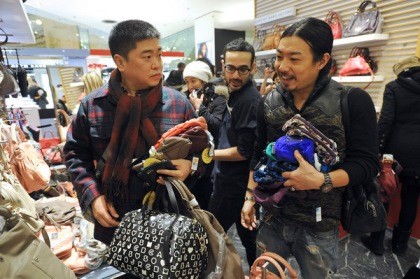Results of a survey released jointly by Beijing-based insurer Taikang Insurance and Hurun Report revealed that high-net worth individuals in Shanghai, especially the middle-aged ones, value health more than wealth as they actively plan for a post-retirement, healthy life, China Daily reported.
The results were based on survey conducted on the lives of the wealthy, 75 percent of Shanghai's rich people with a minimum personal wealth of 10 million yuan ($1.57 million) who take a medical test every year.
According to the survey, about 12 percent of the said individuals undergo medical test every six months. While the majority go to domestic public hospitals or physical examination institutions, 20 percent of them choose domestic private hospitals and 17 percent go to foreign physical examination institutions in Shanghai.
The survey showed that these figures are higher than the national average.
Li Zhiqi, owner of an international trade company in Shanghai, said he goes to a foreign physical examination institution every year. Li said he prefers it as "it provides much better services, even though it charges five times or even more than the public hospitals."
"I am not saying that the services in public hospitals are not improving," Li said. "Great progress has been made in recent years. But still, these hospitals have a huge stream of people every day. Foreign-funded physical examination centers usually have a smaller flow rate so that I can consult the doctor for a longer time and protect my privacy."
The Taikang-Hurun survey studied 1,119 Chinese rich people, among whom 12.7 percent live in Shanghai, which is home to the third-largest group of people with high net worth in the country.
The report said that this year, the number of rich people with personal wealth of 10 million yuan and above grew by 22,000, reaching 181,000. Their total assets account for about 20 percent of the total assets of the rich Chinese.
The survey showed that Shanghai's rich will consult with private hospitals in the future. About 61 percent of the respondents said that they prefer Chinese-funded private hospitals, while some 58 percent choose foreign-funded ones.
Half of the respondents said they will consult private doctors within the next three years, the survey showed.
More than half or 61 percent of the interviewees think highly of private doctors for their one-to-one health management plans. Some 43 percent of the respondents said that availability of medical services is important.
The survey further showed that wealthy individuals are also highly interested in high-end nursing communities for the elderly, where 70 percent of them said they will study the current situation of these communities, while 45 percent said they are willing to live in those communities in the future.




























